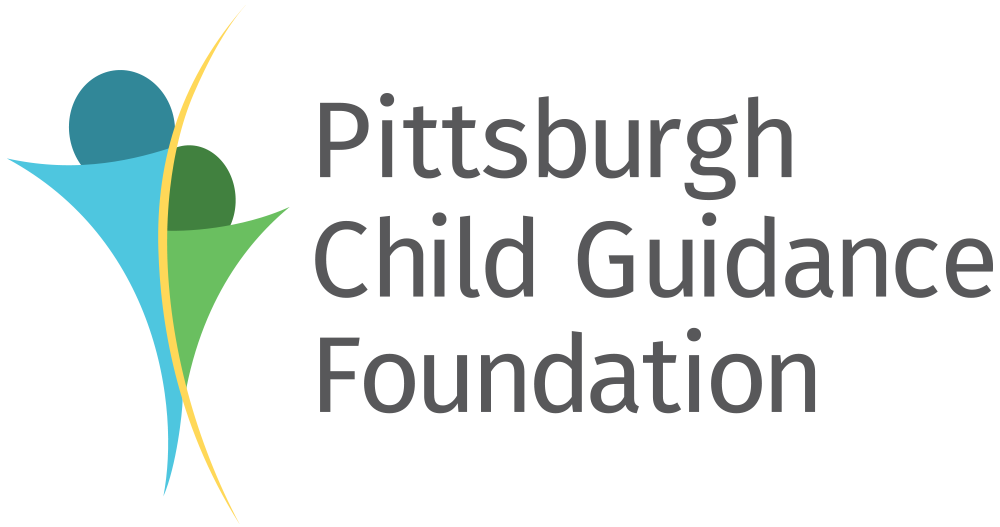Our History

40+
Years of
experience
Our Legacy
1982-2025
The legacy of the Pittsburgh Child Guidance Foundation (PCGF) is one of a small, hard-working, and thoughtful grantmaker that is consistently evolving to create the strongest possible impact on the lives of the region’s most vulnerable children.
While it has redefined itself over the years, PCGF remains true to its beginnings. Since its inception 90+ years ago as a direct service provider, the organization has endeavored to understand, educate, advocate for, and amplify the need to address the mental health and well-being of children.
The Foundation was established in 1982 as the successor to the Pittsburgh Child Guidance Center (PCGC). The Center was founded in 1931 to provide psychiatric services to children and their families, train mental health professionals, conduct research and promote mental wellness in the community. The Foundation upholds its founding tradition of directing resources and advocacy to the support of children’s mental health and well-being, enabling them to grow into healthy, well-adjusted, functioning adults.
Our History
From Clinic to Foundation
On January 1, 1982, PCGC transferred its clinical services to Western Psychiatric Institute and Clinic and began operating as a Foundation. In the early years, the Foundation discovered ways to have an impact with limited resources and primarily funded proposals that supported research or services to children with diagnosable, severe emotional disturbances. While grant sizes varied, the Foundation continued to focus on the mental health of children 18 years and younger residing in the seven counties of western Pennsylvania who had been served by the Center.
Foundation Takes Shape
In 1987, the mission and vision of the Foundation began to crystalize. The sale of its Oakland facility on DeSoto Street to the University of Pittsburgh significantly increased PCGF’s endowment. With these changes, the Board of Trustees engaged in a long-range planning process that led to a revision in the structure of its grantmaking. Two-thirds of the Foundation’s distribution was to fund multi-year program grants while the remaining one-third would provide small awards to applicants who identified needs and requested support. This new grantmaking strategy defined the Foundation for the next decade.
Focus on Prevention
As the Foundation approached its 15th anniversary in 1997, founding Executive Director Britt Alexander announced her retirement. This convergence of changing leadership and an operational milestone sparked the desire of the Board and Executive Director to engage in a planning process that assessed the organization’s accomplishments and charted the course for the future. The process resulted in a series of decisions designed to increase PCGF’s impact on the communities it served.
This strategy focused on:
-Narrowing the Foundation’s scope to serve children aged 12 and younger;
-Narrowing the geographic focus to Allegheny County;
-Devoting at least half of its grantmaking to one significant issue—or an Area of Emphasis—over periods of three to five years; and
-Reaffirming its focus on prevention rather than treatment.
Helping Children Build Competence and Learn Coping Skills
Following the completion of a community-wide survey to identify needs, the first Area of Emphasis was selected by the Board. In 1998, seven primarily faith-based and grassroots organizations received grants of $25,000 that could be renewed for up to five years and were used to support programs that helped children develop coping skills. The Board engaged in an evaluation process to learn from its experience and incorporated these findings into the 2002 planning process for its next Area of Emphasis.
- The Board’s deliberation to choose its next area of focus resulted in the addition of two new criteria;
- The Area of Emphasis should be both compelling and sustainable:
To address an issue affecting a large and growing number of children that was not yet on the community’s radar but had the potential to garner attention and support from other private and public partners.
Claire A. Walker, PhD was named the Foundation’s second Executive Director
in 1997.
Address the Losses Experienced by Children Whose Parents are Incarcerated
Following an extensive planning process, the Board unanimously approved the second Area of Emphasis, working with community partners to address the losses experienced by children whose parents are incarcerated. Over the 10-year period (2003-12), the Foundation applied most of its resources to achieving four goals:
-To document what happens to children of prisoners;
-To share the findings of the Foundation’s research with the community;
-To convene key stakeholders to address the issues; and
-To join with public and private partners to create policies and practices that strengthen the emotional health and wellbeing of children of incarcerated parents.
Over the course of this decade-long initiative, the Foundation issued three Reports to the Community summarizing the results of its learning and efforts to improve the lives of children impacted by the incarceration of their parents. Expanded versions of these reports were also produced to provide a fuller picture of a decade of work to change lives and improve systems.
Stakeholders who were engaged in the process and assisted in ushering in changes included the Allegheny County Executive, the warden of the County Jail, the County’s Department of Human Services as well as several judges, attorneys and various nonprofit organizations that provided services to children and formerly incarcerated people.
Several educational videos were produced to raise awareness and encourage systemic change by various stakeholders. One video served the legal community; another amplified the voices of the incarcerated on the importance of staying involved with the family while incarcerated.
25 Years of Service
In celebration of the PCGF’s 25th Anniversary in 2007, supporters were invited to make contributions to honor “Champions for Children”—individuals or organizations that had a positive impact in the community while working with minimal resources.
In December 2012, the Foundation’s second Executive Director, Claire Walker, PhD, announced her retirement.
The second Area of Emphasis renewed the Foundation’s commitment to public education and advocacy and strengthened the Foundation as an independent voice for children in Allegheny County. While wrapping up several projects related to the Children of the Incarcerated initiative, the Board voted to engage in a strategic decision-making process that would set
the course for the future by considering pressing issues families with young children face and how to achieve maximum impact as a small foundation.
In 2013, the Foundation’s third Executive Director, Pamela W. Golden, MPM, was appointed.
At the annual meeting in 2014, the “Champions for Children” awards were presented to two organizations:
-Hilltop Community Healthcare Center and its physicians who take a holistic approach to caring for a diverse population that includes bilingual caregivers, pediatric and dental care, and encouraging learning by giving books to all children ages 6 months to 5 years.
-The Pittsburgh Project, based on the Northside, works with fragile families that provide age-appropriate after-school activities, summer employment opportunities for youth, vocational training, and social and emotional development.
Serving Families with Young Children Experiencing Homelessness
In April 2014, the Board approved and launched its third initiative: serving families with young children who are experiencing homelessness.
From 2014 to 2023, the Foundation would dedicate the majority of its resources to programs that mitigate the circumstances of those experiencing homelessness or risk of homelessness.
- Support was given for the development of a mobile phone app that enables those in need of help and for service providers to access a myriad of accurate, relevant services. Research and planning grants were awarded to partners to better understand the issues and offer practical solutions.
- Grants were given to improve the circumstances of children living in shelters, enabling them to enjoy birthday parties; exposure to arts, cultural and sports outings; and to receive books, toys and games.
- In addition to providing grants that support the basic needs of families (food, clothing, medical and dental care, transportation), the Foundation worked with numerous community organizations to address a host of needs.
- Conversations with service organizations and government agencies, interviews, and panel discussions led to the development of a training series for direct service providers working in the shelter care system. Because of the exceptionally high employee turnover rate of 40%, this education series was developed by the Foundation in collaboration with other nonprofits and offered free of charge to participants to ensure the delivery of culturally sensitive care and to honor these staff members and acknowledge the challenges they face.
- For several years, the Foundation awarded grants that aided in the development and promotion of BigBurgh, a mobile phone app (or desktop program) in English and Spanish. This app helps those experiencing or at risk of homelessness and service providers in accessing a myriad of services from basic needs to mental health counseling. Research and planning grants were given to address policy issues. Ensuring that children living in shelters enjoy some of the same experiences as their peers, grants supported birthday parties, summer camp experiences, received free books, toys and equipment, and exposure to professional arts, cultural and sporting events. Funds were provided for use as micro grants to families in jeopardy of becoming homeless because of their inability to pay rent or a utility bill.
In 2020, when the global pandemic brought life as we knew it to a grinding halt, PCGF joined with other local foundations to pool resources that created the Emergency Action Fund to respond to community needs.
During this time, the Foundation made small adjustments to its funding strategies to address the shifting needs of the community. For example, because children were engaging in remote learning, an educational video series was produced to stress the importance of parental involvement in their child’s early education and featured strategies for accomplishing this.
The Homeless Children’s Education Fund created Winnie’s Wagon, a mobile learning unit that enabled unhoused children not living in shelters to receive tutoring and continue their education.
Building Skills for Life
In 2023, the Board engaged in a strategic planning process to identify the next Area of Emphasis: Social and Emotional Learning (SEL).
In 2024, the Foundation began awarding grants to programs that help children and youth develop social and emotional competencies through education and mentorship. Through SEL, children and youth learn to set and achieve goals, show empathy, establish positive relationships, and make responsible decisions. SEL skills are based on five strategies:
- Self-awareness
- Self-management
- Social awareness
- Relationship skills
- Responsible decision-making
The long-term goals of Social and Emotional Learning (SEL) are to:
- Encourage completion of high school;
- Increase self-confidence;
- Develop interest in and exploration of career opportunities;
- Connect with role-models; and
- Learn life and work ready skills.
The tangible and intangible skills children and youth develop through social emotional growth will help them thrive throughout their lives.
Looking Forward
The Board of Trustees and Executive Director will continue to collaborate with community partners to identify, and then address, the needs of children living in Allegheny County.
The Pittsburgh Child Guidance Foundation is committed to making significant and positive differences in the lives of children who, through no fault of their own, find themselves in difficult situations that can have a lasting impact on their lives and futures.
Tax Filings

